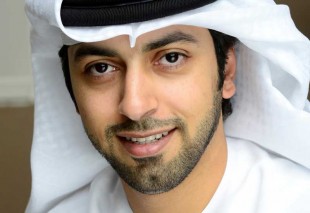

Tourism interview: TCA Abu Dhabi

Abu Dhabi has seen continued growth in hotel guest arrivals in the first half of 2016, up by 7% to 2.1 million from January to June 2016 compared to the previous year. However, downward pressure on occupancy, length of stay and revenues during the same period has meant that hotels in the UAE capital reported declines in all key metrics, resulting in a 12.6% drop in RevPAR to US $110.23 (according to TRI Consulting).
At Abu Dhabi Tourism & Culture Authority (TCA Abu Dhabi), acting executive director Sultan Al Dhaheri acknowledges these figures “may not paint a rosy picture”, but says “they should be assessed against the backdrop of a period of sustained guest growth, and are indicative of a regional competitive environment of declining room rates and increasing supply”.
Al Dhaheri says there “remain as many opportunities” as there are challenges for Abu Dhabi’s hotels.
“Abu Dhabi’s tourism sector is proving itself to be resilient. And this is no accident,” he asserts. “It is through very careful, strategic planning, where we have prioritised markets across the world that offer the best market potential, and offset any single influence on demand. We have identified six key markets — the UK, Germany, India, China, Australia and the GCC — that provide a very strong product mix, and that allow us to prioritise investment to best match market conditions.”
At the same time, despite facing a period of perceived global uncertainty, Al Dhaheri says that Abu Dhabi’s tourism infrastructure projects “have not stopped”. These developments include new hotels: most significantly, the five-star Bab Al Qasr, opposite Emirates Palace, and the Fairmont Marina Resort, nearing completion close to the Corniche breakwater. There is also expansion planned for the Saadiyat Island, with the Saadiyat Rotana Resort and Saadiyat Jumeirah hotels expected in 2017.
“The emirate is also readying for the imminent opening of the Louvre Abu Dhabi and the 2018 opening of the Warner Bros Theme Park on Yas Island, while new sporting events are being welcomed, including the FBMA Golf Tournament this November — the first annual women’s professional golf tournament to be held in the emirate,” says Al Dhaheri.
In addition to continued developments aimed at the cultural, leisure and family tourism markets, Abu Dhabi is enhancing its MICE industry provision. Recent statistics from the International Congress and Convention Association (ICCA) show that the number of association meetings taking place in the emirate has grown steadily from four in 2005 to 35 in 2015. “We have established several industry development committees to enhance greater stakeholder involvement in our bid development process, as well as developing a programme of ‘champions’ for sectors of the emirate’s diversifying economy identified as areas of priority for conference, association and corporate travel activity. This is in addition to our established Advantage Abu Dhabi incentive scheme, our hosting of the regional MICE show IBTM Arabia in Abu Dhabi, and attendance at leading global MICE events such as IMEX and IBTM World, previously known as EIBTM,” says Al Dhaheri.
Abu Dhabi has also made significant headway in cruise tourism since the opening at the end of 2015 of its dedicated cruise terminal at Zayed Port.
“Last cruise season, Abu Dhabi received 16% more cruise passengers and cruise vessel calls were up 20% to a total of 113,” reveals Al Dhaheri. “Tourists from Germany, Italy, and the UK made up 80% of cruise visitors to Abu Dhabi in the 2015/2016 season, while Spain, France, Belgium, the Netherlands and Austria were equally well-represented.”
Later this year, Abu Dhabi is set to become home to an exclusive desert island beach stopover for cruises on Sir Bani Yas Island, enhancing regional cruise tourism appeal.
Finally, as always in developing destinations, increased airlift remains key to the positive performance of the hotel sector. In August, national carrier Etihad Airways added nine weekly flights between Doha and Abu Dhabi. Meanwhile, new international routes, such as Rabat, Morocco, are offering potential in as-yet-untapped markets. “Our national airline last year launched its first-ever route to Scotland, with daily flights to Edinburgh,” says Al Dhaheri. “Hong Kong and Brisbane were also added relatively recently, so we are sure to look at boosting travel from these destinations — and any other opportunities that arise — throughout 2016.”
To boost Abu Dhabi’s reputation globally, Al Dhaheri says a new global destination brand campaign will be rolled out in priority overseas markets later this year and into 2017, with an inspirational narrative aimed at “capturing the essence of Abu Dhabi”.